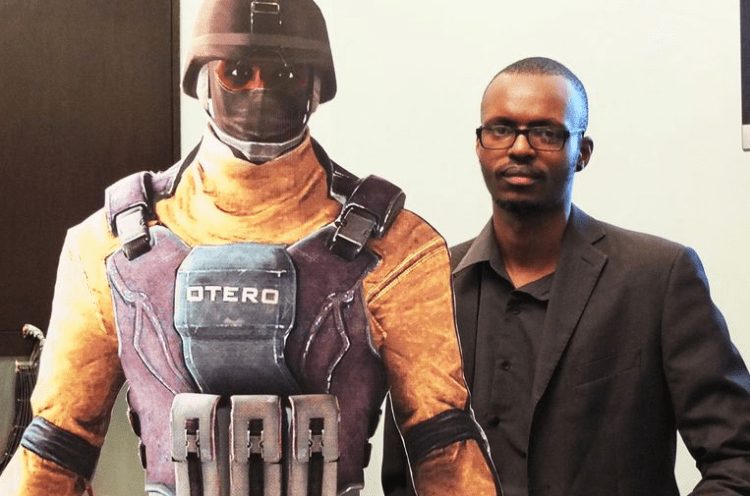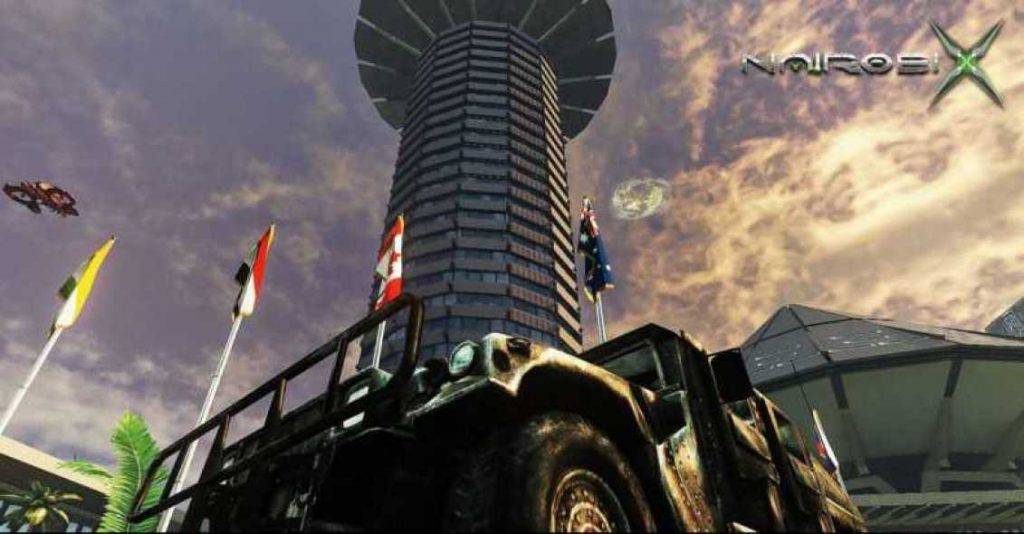Aliens In Nairobi? Africa’s First 3D Video Game Was Made In Kenya And Look Who Put In The Work Solo

Wouldn’t GTA or Call Of Duty be that bit interesting if it had some jam by Sauti Sol playing in the background as the game progresses, and perhaps a Safaricom billboard popping up in the streets every once in a while?
Well, I’m pretty sure our game-loving friends in Kenya can relate to that. But maybe they don’t have to look any further with longing. And that’s because something similar is happening in their own backyard.
I’m not much of a gamer myself – I may have some patience, finesse, and skill deficit. But being Nigerian, I think I’d totally spend hours playing a game that has Wizkid’s “Soco” or Burna Boy’s “On The Low” playing in the background, with perhaps a statue of an ‘Eyo’ masquerade standing in the middle of a roundabout, or maybe something else that screams; “this is Lagos” – besides the heavy traffic, of course.
While it seems I’ll have to do some waiting before my fantasies come to life, it does offer some hope that gamers in Nairobi are already living the dream. And in 3D too! Yes, you heard right; 3D.

It was sometime around June 2015 when Andrew Kagia made history by rolling out what is largely considered Africa’s first 3D video game; Nairobi X – Yes, our very own GTA. Or, maybe even better since it contains some African flavour.
The local gaming community was thrilled by the first-person shooter game set in Nairobi and centered on a fictional character, Otero, who is part of a recce squad and is on an assignment to save the city from an alien invasion.
I get it; stopping an alien invasion cannot exactly be termed an everyday problem in Nairobi, but neither is running away from zombies in Cincinnati. And isn’t that what this sort of gaming is all about? Giving you your adrenaline fix by putting you in situations you’d rather not want to be caught dead in? I stand to be corrected, though.
Well, it’s a game, alright, and a mind-blowing one too – one that, upon launch, became an instant hit amongst gamers in Kenya and beyond.
The game kicks off at the Kenyatta International Conference Centre where Otero sets off on his mission after being briefed about the situation.
Even though the game still has some way to go with respect to matching the graphics and special effects of the likes of more popular, similarly-themed games, it has undoubtedly pioneered local game development in the Kenyan gaming industry.
It is not every day that we get to see an action-packed game with Kenyan music in the background and Jua Cali billboards on the streets. You can’t do much better than blasting away aliens with Times Tower standing on the other side of the sidewalk, and “sheg” commands being screamed over headphones. At least, our Kenyan folks can relate.

With a bounty that amounts to billions of dollars, the gaming industry literally makes fun look like serious business. And it is. From programmers, animators, scriptwriters, costume designers, to movie stars, the process of making video games needs an awful lot of hands on deck. A lot of work and people are employed in the process of making just one video game.
As the jostling for places seems to always be in full swing, it’s become commonplace for games to spark technological advancement that, in some cases, go as far as finding use in other industries in real life.
To capture the attention of the gaming audience and keep it too, gaming companies are always in a rat race, trying to outdo one another in an effort to improve gamers’ experience. This has, over the years, seen video games give traditional entertainment a run for its money.
In the United States alone, an estimated 155 million people play video games, many of who spend less time watching shows or movies on TV. Lately, too, the graphics in video games have progressively developed – so much so that playing one does seem like watching and acting in your own movie.
Also, as game revenues keep doing a rocket climb – even surpassing what is realised from Hollywood blockbusters in some instances – game developers are beginning to take things to the next level. These days, advanced technology is used to capture facial expressions and body movements of popular movie stars; mimicking real-life actions to an astonishing extent.
All these indicate that game development and gaming are actually going to get a lot better as the years roll by, and perhaps it might do the continent a whole world of good if more attention is paid to the industry. It begins with a small effort; something of the order of Andrew Kagia’s, and who knows; we might just turn out something that could rival “god of war.” And we do have quite a list of African gods, you know?
Andrew’s solo achievement did take some doing and he deserves a lot of credit, especially as it could ideally require a team of up to 200 people on a budget of between USD 100 Mn to USD 500 Mn to develop a kickass game in five years. And that’s according to the Kenyan game developer.

“I actually lost weight during the development process, I’d lock myself in a room for days without eating,” he says. “It took me a year to make this game; I did all the work on my own.”
He adds; “I’ve always played games where I killed aliens in New York, Los Angeles and London, so I thought to myself, why not bring aliens to Nairobi?” And what a clever idea it turned out to be.
Growing up, Andrew fell in love with animation as he watched a lot of cartoons like most kids. But unlike most, he didn’t fall out of love with it; he was probably too hung up on how they came to life, and said things, and did things.
While in high school, he got his hands on animation software. It was as though he had landed the best present any kid could ever wish for from Santa at Christmas, and he couldn’t stop tinkering with the software. That was how he honed his skills and became some sort of small-time animator.
Prior to launching the 3D game, he had put in work for a number of high-profile clients such as Nescafe, V500, The XYZ Show, The DB Agency, and The Property Show. While on those jobs, he leveraged his skills to telling effect.
When the game hit the interwebs, the reception it got made it seem as though hardcore gamers had been lying in wait for an ambush. Within two days of the release of the 3D gaming content, blogs were agog with reviews and the usual suspects were having a field day with cheats.
There was an outcry from game enthusiasts citing glitches and the game’s incredible level of difficulty as drawbacks, but those have since been fixed and the Kenyan developer has undoubtedly scribbled his initials on the scroll of Africa’s gaming folklore – a book that could yet use many more pages.
Featured Image Courtesy: espact.com